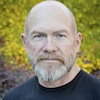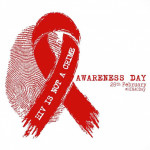 |
| Tez Anderson |
It has been 33 years since the U.S. Centers for Disease Control and Prevention (CDC) first released a report about a mystery illness that would come to be known as HIV. For the next 20 years, AIDS would hit the gay male community unrelentingly hard. As a community, we would care for and bury hundreds of thousands of our loved ones. Without effective treatments to offer hope, thousands of us became caretakers while preparing to die ourselves. Even for those who remained uninfected, it was a traumatizing time that required extraordinary resilience and ingenuity to survive.
So why are the survivors of the HIV epidemic treated like the Rodney Dangerfields of catastrophic illnesses—why do we get no respect? Everyday there are stories in the media about survivors, someone who, despite the odds, survived something horrific. Think about the reverence with which we view survivors of the Holocaust. Then think about how survivors of the AIDS epidemic are regarded. Most of my fellow survivors feel invisible and forgotten by even their own community. We are simply not in the zeitgeist.
It is time to change this pervasive social amnesia.
On May 25 HBO premieres the film version of Larry Kramer’s play The Normal Heart set in the early days of the plague. Eleven days later, on June 5, Let’s Kick ASS—AIDS Survivor Syndrome is starting the first-ever National HIV/AIDS Long-Term Survivors Awareness Day (NHALTSAD). That day is the 33rd anniversary of the first CDC announcement of AIDS.
 |
The theme for this inaugural observation day is “We’re Still Here” reflecting the heroic tenacity and determination of a generation of survivors who lived through the darkest decades of the AIDS epidemic—the 1980s and 1990s. It is a day to celebrate our survival and begin envisioning the future we never imagined. The first decades of our adulthood were overwhelmingly consumed with illness, death and fear. Now it is up to us to ensure that the next decades are the best they can be. The least we can do is afford survivors the respect they have earned and acknowledge them as elders, teachers and leaders.
We are not limiting the term “long-term survivors” to those who are HIV positive. Those people who remained uninfected—yet whose lives were also turned upside down by the communal and individual trauma brought on by the AIDS epidemic—are survivors too. Their needs and issues have also been largely overlooked, even though taking care of their psychological health is crucial to keeping them negative.
Our goals for that day are embodied in our mission statement: “Let’s Kick ASS is a grassroots movement of long-term survivors, positive and negative, honoring the unique and profound experience of living through the AIDS epidemic. We’re dedicated to reclaiming our lives, ending isolation, and envisioning a future we never dreamed of.” We’ll do so while paving the way for a bright and purposeful future for those of us who endured such a painful past.
Because of that past, we still have significant psychosocial hurdles as survivors that we urgently need to address. The concept of AIDS Survivor Syndrome (ASS) is just now gaining traction and it has not been studied nor recognized nearly as much as it should be. But it is very real and can be devastating.
 |
I know this because my journey as a survivor involved a very dark time that I now recognize as trauma-related. This low point came nearly 10 years after protease inhibitors and highly active antiretrovirals (HAART) changed the face of the epidemic. After surviving AIDS for 25 years (I became HIV positive in 1983), it was ASS that nearly killed me. Instead of thriving after my health stabilized, I became unglued. I thought I was going crazy. Nothing made sense. It felt like I was trying to catch a waterfall with my hands. I had way more questions than I had answers.
How had I lived this long? Why had I lived when so many of my loved ones and community had died? When I thought I was dying and those around me were dying, I had a purpose—fight to stay alive. This was a time that, as a community and as individuals, we discovered strength we didn’t know we had. We came together in a way we had not before. The worst of times brought out the best in our community.
In large parts due to our efforts, the dying did dramatically slow and I did unexpectedly survive, but what was my purpose now? Why was it so hard to go from dying to living? Perhaps because, of all the plans I had made, actually living out my life was not among them. For example, why had I not planned for retirement? The realization that I was heading for poverty in my unforeseen old age sent me into a tailspin. I acted out and became angry and withdrawn. My depression became suicidal ideation that turned in to well thought out plans to kill myself. I could only sleep with heavy doses of sleeping pills and I never felt rested. I was spinning out of control and I could not explain it to anyone because I didn’t understand it myself. I was so stressed that I came down with cryptococcal meningitis and spent two weeks in the hospital and nearly died.
At no point in my decades of therapy had anyone suggested my craziness was a perfectly natural response to the experience of living in trauma for a quarter of a century. I remember the day that I saw a piece on TV about military veterans and post-traumatic stress disorder (PTSD). I couldn’t stop crying. Could my reactions be post traumatic stress-related? After years of feeling out of control, things began to make sense. After I began to share my story, I realized that I wasn’t the only one perplexed by survival.
My suspicions were sadly confirmed when in December of 2012, the renowned AIDS activist Spencer Cox died. After his death there we accounts that he’d stopped taking his medications, the very treatments he’d help bring to market. By all accounts, he seemed just to give up after fighting so hard for so long. He had helped save our lives, but no one could save him. His death occurred around the time of several suicides by long-term survivors. It was in response to those deaths and my own experience that I started a group called Let’s Kick after I joined a new support group of long-term survivors. After a series of successful town hall forums in San Francisco over the past year, the group has just filed papers to become a nonprofit.
Involvement in the group has changed my life. I no longer take anti-depressants, sleeping pills or Xanax for my anxiety. I now have a purpose. I have a community again filled with people I love and who seem to like to me too. I’m too old to be this corny, but damn if it doesn’t feel good.
I hope on June 5, and the rest of the year, you’ll find ways to seek out survivors and listen to them. Do not just accept “I’m fine” when you ask, “How are you?” Listen to them. Acknowledge that they’ve come through the fire, but they can still dream and be happy. Better yet, form a group to address the issues of long-term survivors in your community. Sure, there is still plenty to complain about and much work to be done, but we can do it. Let’s all start on June 5 by coming together and saying “congratulations on surviving” to a heroic generation.
We’ve earned it.
Tez Anderson is a long-term AIDS survivor and the founder of Let’s Kick ASS. He lives in San Francisco with his husband Mark Ruiz. If you’re in the Bay Area, go to AIDSSurvivorsSummit.org to learn more about the AIDS Survivors Summit/San Francisco 2014. Go to NHALTSAD.org for more information on National HIV/AIDS Long-Term Survivors Awareness Day.






12 Comments
12 Comments